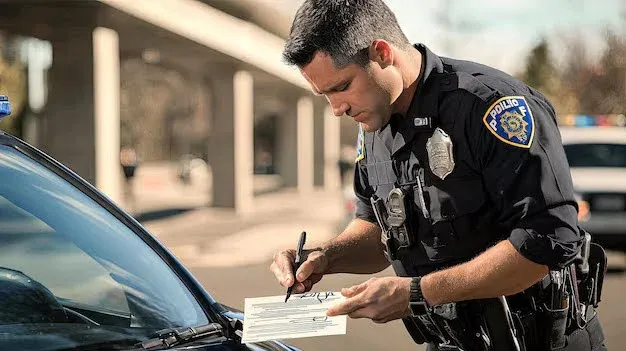
Why Is My Auto Insurance So High?
You just opened your newest auto insurance bill and your jaw falls open.

It's increased again. You haven't purchased a new vehicle or submitted any claims in a while, so why does it seem like you're paying more for the same thing?
If you find yourself wondering, "Why is my car insurance so much?" you're not the only one. Tens of millions of drivers are asking the same question. Though premiums can appear to be arbitrary, there are typically very specific explanations for them. Let's spell it out in simple language and look at what might be behind your expense and what you can do about it.
Your Driving Record Plays a Big Role

If you've had any claims, tickets, or accidents over the past few years, your premiums are probably going to be higher because of it. One speeding ticket can even drive your premium up. Insurance providers look at your driving record to estimate how dangerous you'll be. When the record presents a history of risk, they will charge more to cover themselves.
On the other hand, a long clean driving record can gradually reduce your premium.
The Type of Car You Drive Means More Than You Think
Your car isn't just a way to get from point A to B, it's part of the way your insurer assesses risk.
High-end cars, sports cars, and cars with high-cost components usually cost more to repair or replace. Even a small car may be pricey to insure if it has a bad safety rating or if it's a hot car to steal in your region.
Before you fall in love with your next vehicle, it's a good idea to find out how much it will cost to insure.
Where You Live Affects Your Rate
Insurance companies consider your ZIP code when determining your premium. Why? Because some neighborhoods are more likely to have accidents, theft, vandalism, or severe weather.
If you're in a busy city, you're more likely to make a claim than your neighbor in a peaceful rural suburb. Even two different neighborhoods within the same city can have significantly different rates depending on neighborhood crime or accident patterns.
Your Credit Score Could Be Working Against You
It might seem unrelated, but in most states, your credit history impacts your auto insurance rate. Why? Studies show that people with higher credit scores tend to file fewer claims.
If your credit score has dropped even if your driving is perfect it could be raising your premium. Improving your score can lead to better rates over time.
Low Deductible = Higher Monthly Premium
Selecting a lower deductible has your insurer picking up more in the case of a claim. That may sound wonderful in a pinch, but it also makes you pay a higher monthly premium.
If you can comfortably afford to shell out a greater deductible yourself, increasing it can decrease your premiums.
Extra Coverage Adds Up
Auto insurance can be tailored and each add-on costs extra. Roadside assistance, rental car reimbursement, gap insurance, or increased liability limits are handy, but they do drive up your premium.
Take a look at your policy. Are you paying for coverage no longer required? Canceling unnecessary extras could save you more than you realize.
Age and Driving Experience Count
Teenagers and young drivers under age 25 pay more because they're in the high-risk pool.

Even older drivers, however, can expect to see rate increases if they've newly become drivers or have had gaps in their insurance.
At the opposite end of the age spectrum, some seniors find their rates rising as a result of age-related factors, like diminished reaction time or decreased visibility.
Insurance Gaps Can Cost You
If you've ever allowed your coverage to lapse for even a brief period it could be impacting your premium. Insurance companies like drivers to have uninterrupted coverage. A lapse in coverage may indicate to them that you're a greater risk even though you weren't driving then.
If you won't be using your vehicle for an extended period of time, look into having a non-owner or parked car insurance policy so your coverage history remains intact.
What You Can Do to Keep Your Premium Low
When you know what is increasing your rate, you can take some wise actions:
Begin by getting your policy reviewed with an agent. Chances are you are paying more than you need for outdated coverage or unclaimed discounts.
Inquire about bundling if you have renters or home insurance, bundling it with your auto policy can save you money.

Be an active discounter. Safe driving, low-mileage, anti-theft systems, and even being a good student can save you money on your rate. Often, you just have to ask.
Finally, a comparison shop. Various insurers employ varying rating formulas, and you could be saving money just by obtaining a couple of quotes. Loyalty is great, but it doesn't necessarily translate into getting the best rate.
Final Thoughts
Auto insurance rates may seem like a puzzle, but they're based on actual facts. Your driving style, the vehicle you drive, where you live, your credit, and your level of coverage all factor in.
If your rates are higher than you expect, don't accept it as fact. Get into the details, ask questions, and check out alternatives. It's possible with a little work you can find a better policy or a better rate.
Need Help Shopping Your Insurance Options?
At Savvital, we think you shouldn't pay more for auto insurance than you have to, particularly if the right guidance can save you money. Whatever the situation, whether you are checking your existing policy or searching for one that is a better match, our experts are here to assist you.
Let us help you insure your vehicle without maxing out your budget.
Quick FAQ
Q: Can I negotiate my rate?
Not necessarily but comparing premiums, changing coverage, and becoming eligible for discounts is the second best.
Q: When should I check my policy?
At least annually or whenever your circumstances change like purchasing a new vehicle or relocation.
Q: Will insuring a driver increase my premium?
Yes, particularly if they are young or have a bad driving record.
Published on 29 Aug 2025
Author: Savvital Team